http://aviationweek.com/military-traine ... b-lose-t-xSTOCKHOLM—The Swedish Air Force has little interest in any of the U.S. Air Force’s next-generation T-X trainer candidates except the Boeing/Saab offer, but is not ready to rule them in or out as potential SK 60 replacements.
Col. Magnus Liljegren, head of Swedish Air Force training and development, says a political decision has been made to extend the service life of the nation’s 40 antiquated SK 60/Saab 105 training aircraft from 2020 to 2025-26 so that Boeing and Saab’s “BTX” model for the $16 billion T-X program can be fully considered.
If Boeing and Saab are not selected to replace the Northrop T-38 Talon in the U.S., Sweden would likely opt instead for a glass-cockpit Pilatus PC-21-like turboprop over any of the other high-performance candidates in the T-X race, Liljegren says. Sweden could probably not afford to support the development of the Boeing/Saab trainer on its own and would prefer to piggyback on the U.S. Air Force program for 350 fighter trainers.
Swedish defense industrial titan Saab helped design and build the two “production-ready” BTX aircraft now flying at Boeing’s plant in St. Louis, and would attract a significant amount of workshare if the team wins.
The SK 60 entered service in 1967 and has been upgraded with modern Williams International FJ44-1C turbofan engines. But its outdated cockpit is a significant learning challenge for Swedish pilots transitioning into modern fighters, primarily the Saab Gripen C/D and future E/F models.
“If Saab and Boeing do not win, we will not take the aircraft that the U.S. Air Force will go for, because it doesn’t make sense in that case,” Liljegren said during a May 8 media briefing here. “Then we’ll go for a PC-21-type of aircraft, a turboprop with a glass cockpit. We will not go for the other competitors; they’d be too expensive.”
Liljegren was specifically asked about the potential of Sweden adopting the Lockheed Martin/Korea Aerospace Industries T-50A, Leonardo/DRS M-346 Master-based T-100 or Sierra Nevada Corp./Turkish Aerospace Industries Freedom Trainer. He says the Swedish Air Force would probably not consider those aircraft, even if they win T-X.
Liljegren says the SK 60 was due to start retiring in 2020, but initial operational capability for T-X is slated for 2024. “A decision [was] made from the political side that we should consider keeping the SK 60 up to 2025/2026,” he explains. “That will make it possible for us to look into the Saab/Boeing T-X, because 2020 is too early.”
Following Liljegren’s comments on May 9, the Swedish Material Administration clarified that it was not ruling out any potential suppliers “at this stage. We will not define which manufacturers that may be potential suppliers of a new training aircraft for the Swedish Air Force,” the organization said in a statement. “We have developed requirements on an overall level about a new trainer system.”
Liljegren says the BTX aircraft appears to have all of the capabilities Sweden needs to train pilots to fly the Gripen, although the training base would probably need to be relocated because of the engine noise. The Saab/Boeing offer is powered by a single General Electric F404 engine. The only candidate powered by a low-noise business jet-class engine is Sierra Nevada Corp.’s Freedom Trainer, with two Williams FJ44s.
Saab will not confirm what parts of the Boeing T-X aircraft it will supply, if victorious. “We have a very clear set of things we’ll do and Boeing will do, but we’re not commenting on that,” Saab CEO Håkan Buskhe said in a separate media briefing on May 8.
The U.S. Air Force is due to announce a T-X winner later this year.

This is a subscription only section
Want to read more? It's only €10/year.
Already have a subscription?Login
No subscription yet? Head to our shop
No account yet? Just Create an account first and head to the shop
Soviet Transports Database
By using this database, you agree to the following:
Nothing may be copied from this database without prior written permission from
the Soviet Transports team, for use in books, CD-ROMs, magazines or by any electronic means such as
publication on the Internet.
A lot of the information received for this database comes from official sources within the CIS.
This data was supplied strictly for use in the Soviet Transports database. Some sources can, and
will, take steps against anybody using information from this database, in order to protect their
interests. Additionally, this database is the result of decades of work, study, friendship,
travelling and donations by the ST team. It therefore would be absolutely unfair towards the
authors, the sources, and the fellow enthusiasts supplying information for use in the Soviet
Transports database to violate the copyright.
Please be warned that even simple checklists and all books containing information from this
database, as well as data distributed via the Internet, e-mail or any other electronic device can be
subject to legal action!
We realise this all sounds unfriendly but a database like this cannot be seen as just another
registration listing. Also in view of the massive copying of data from the printed "Soviet
Transports" books to commercial publications, we have no other choice. Those who want to copy
information need, and can, obtain written permission from the
editors.
Only when you can share knowledge
can you enjoy knowledge !
For many years, the editorial team of Soviet Transports has enjoyed collecting data, in close
co-operation with Scramble, to share with fellow enthusiasts. Making this unique database available
on line, free of charge without any limitations, is the best proof of above statement in our
opinion. For this reason we will continue, as we already have for many years, to update information
on a regular basis.



